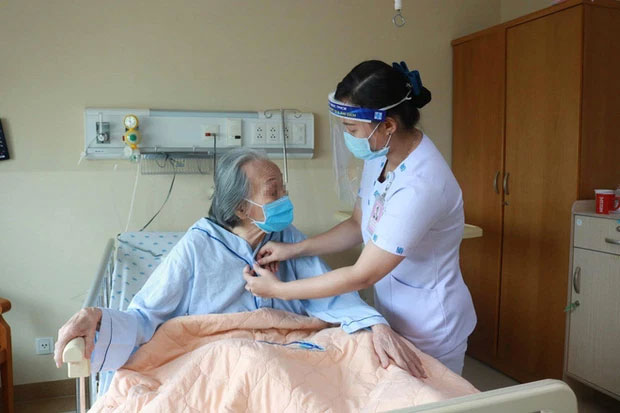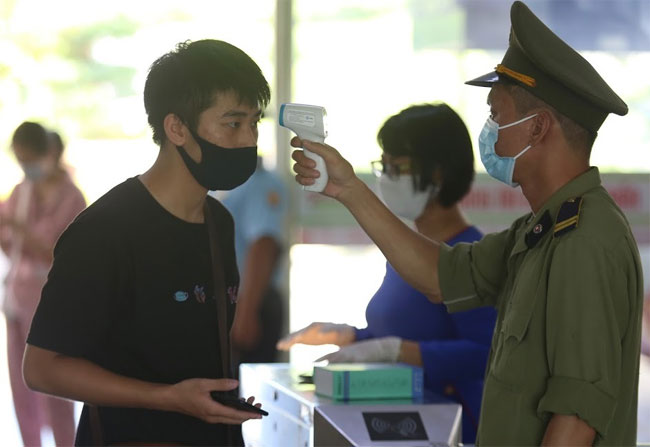According to Associate Professor Dr. Ho Thi Kim Thanh, Director of the Community Health Training and Care Center at Hanoi University of Medicine, doctors have received many similar questions, especially from the elderly. Many elderly individuals have expressed confusion as to why they contracted Covid-19 despite staying at home and not going out.
“However, even if the elderly do not go out or interact with anyone outside, their children and grandchildren go out to work and have contact with others,” Dr. Thanh explained.
While younger individuals have strong immune systems that can fend off small amounts of the virus, the elderly have weakened immune defenses, allowing the virus to attack, replicate quickly, and cause illness.
During the fourth wave of the pandemic, many young people who went out returned home carrying the SARS-CoV-2 virus, which subsequently infected the elderly. In fact, during the outbreak in Ho Chi Minh City, many elderly patients contracted the virus and sadly passed away.
To protect the elderly during the pandemic, Dr. Thanh emphasizes an important principle: young people must adhere to disease prevention measures (5K) whenever they go out.
Here, “young people” specifically refers to children and grandchildren who, upon returning home, need to change their masks, wash their hands, change their clothes, and only then interact with the elderly. This simple act can significantly reduce the viral load if present.

Taking care of the elderly during the Covid-19 pandemic – (Illustrative photo).
The elderly need to improve their health. For example, older individuals can actively build immunity by getting vaccinated, maintaining a balanced diet, ensuring adequate rest, and practicing breathing exercises to have the best defense system.
“If these measures are followed, a small amount of the virus that enters the body can still be fought off by the immune system,” Dr. Thanh stated.
Dr. Thanh noted that in Vietnam, families often consist of multiple generations living together. During the Covid-19 pandemic, the elderly are particularly vulnerable to severe outcomes from virus infections. Therefore, young people living with elderly relatives need to be aware of protecting themselves to avoid transmission.
“It is important to maintain a safe distance from the elderly when returning home, even if all safety measures have been followed. If previously greetings often involved hugs or handshakes, it is now necessary to change these habits to maintain a safe distance.
Ideally, each family should have a separate room for the elderly to live in, where younger family members can monitor and care for them.“, Dr. Thanh advised.

Young people need to change their masks, wash their hands, change their clothes, and only then interact with the elderly. (Illustrative photo).
Caring for the elderly also involves addressing their mental health, which is very important. Children and grandchildren should regularly check in and encourage their elderly relatives. If parents or grandparents live far away, it is essential to maintain regular contact through phone calls.
“Young people often absorb information quickly, especially regarding health crises. However, they should be selective about the information they share with the elderly, bringing only good news home. It is crucial not to relay distressing news that could increase the elderly’s anxiety, potentially affecting any underlying health conditions they may have.”


















































